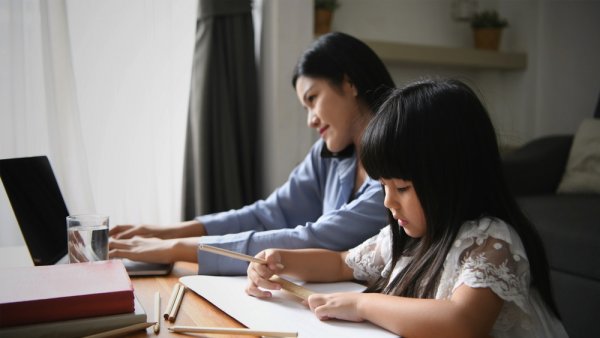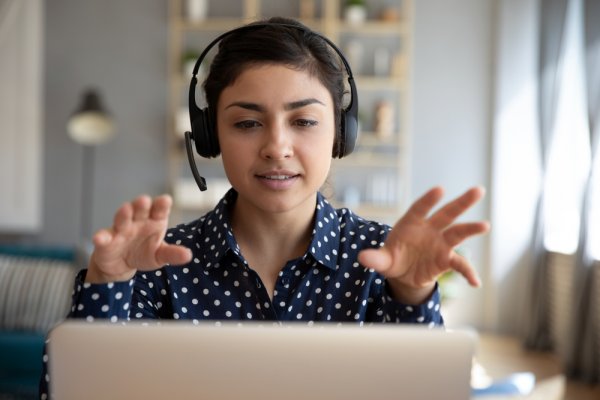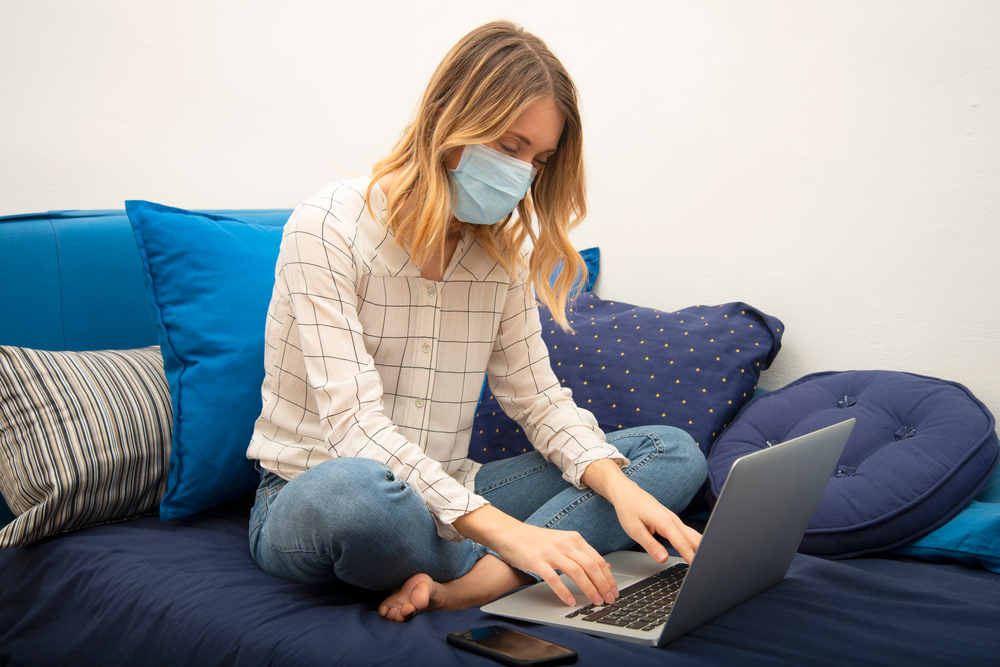Among the indescribable heartache and distress of COVID-19, I spy a silver lining – we are being forced to think differently about how we connect with each other.
With international conferences and workshops cancelled, COVID-19 is forcing us to move to online and virtual alternatives, providing an opportunity to develop and model more inclusive meeting practices.
COVID-19 is forcing us to move to online and virtual alternatives, providing an opportunity to develop and model more inclusive meeting practices.
The move to online meetings significantly broadens the pool of possible participants. This point is not lost on the disability sector, with Australia’s Second Virtual Disability Conference – planned well before the COVID crisis – which is taking place today.
 As well as the reduced environmental impact, virtual meetings allow us to collaborate and share ideas without having to bid or fund raise for travel budgets and conference fees. We don’t need to take a week away from our other work to participate or push through jet lag. With virtual meetings, we don’t have to worry about whether we can access a venue or whether the food meets our health needs. We have quiet space to care for our mental health and there is a greater potential to combine participation with caring duties.
As well as the reduced environmental impact, virtual meetings allow us to collaborate and share ideas without having to bid or fund raise for travel budgets and conference fees. We don’t need to take a week away from our other work to participate or push through jet lag. With virtual meetings, we don’t have to worry about whether we can access a venue or whether the food meets our health needs. We have quiet space to care for our mental health and there is a greater potential to combine participation with caring duties.
With virtual meetings, we don’t have to worry about whether we can access a venue or whether the food meets our health needs.
By engaging virtually, we create greater opportunity to engage with, and learn from, a far more diverse group of people. I hope this means that we see increased voices from the Pacific, often excluded from international meetings because of the prohibitive cost and long commute times involved in travelling from the Pacific region. I hope we also see increased engagement with civil society which is also constrained by small budgets.
But we also need to be careful not to assume that online meetings necessarily improve access. Participation still requires a decent internet connection, an appropriate device and somewhere quiet to engage – resources not available to all. We shouldn’t assume that virtual meetings can be easily combined with home schooling or other care responsibilities, or that virtual spaces are accessible for those with disabilities. We should engage early with participants to ensure meeting methods and times are accessible, and we should encourage post-meeting feedback and lesson learning.
 Virtual formats are also an opportunity to interrogate what constitutes a ‘good’ meeting and to intentionally aim for inclusion. Tamerlaine Beasley argues that “online forums, if they are structured and managed effectively can be even more inclusive than offline”. Alice Chautard and Dr Claire Hann have developed a guide for inclusive conferences which has lessons relevant for virtual meetings – including that different formats can change dynamics and support diversity.
Virtual formats are also an opportunity to interrogate what constitutes a ‘good’ meeting and to intentionally aim for inclusion. Tamerlaine Beasley argues that “online forums, if they are structured and managed effectively can be even more inclusive than offline”. Alice Chautard and Dr Claire Hann have developed a guide for inclusive conferences which has lessons relevant for virtual meetings – including that different formats can change dynamics and support diversity.
Similarly, a new guide by the Deaf/Hard of Hearing Technology Rehabilitation Engineering Research Centre notes that online meetings require a different mindset and scale differently. Apolitical’s excellent resource for online meetings advises querying why a meeting is necessary, investing in prior planning, and be deliberate in efforts to support inclusion. When things are not business as usual, we can stop doing the usual things that are no longer working. Critically, we can make deliberate decisions to break down old habits, including who we give voice to.
Those of us navigating this change are simultaneously out of our comfort zones, while also in our familiar spaces.
But what excites me most about virtual meetings is that this may be an opportunity to connect with each other as whole humans. Those of us navigating this change are simultaneously out of our comfort zones, while also in our familiar spaces. This combination of working together to figure out to how do things differently while wearingjeans and ugg boots appears to be creating a quite delightful air of generosity, humour and solidarity.
I’m wary of advice to make sure we strictly control the space behind us in a video call (though you should definitely mute and try to avoid having your camera pointing up your nose). I like seeing people in their specific spaces and I definitely want to meet your pets. Likewise, if you can see that cupboard behind me is reminiscent of Dr Who’s Tardis or if my dog comes in for a pat, or a teenager lollops past, you know a little bit more about me.
 That might mean we can be a little bit more connected. I believe that if we can be more connected on a human level, we can understand each other better and we can be more generous with each other – and in that generosity and understanding we can be more inclusive.
That might mean we can be a little bit more connected. I believe that if we can be more connected on a human level, we can understand each other better and we can be more generous with each other – and in that generosity and understanding we can be more inclusive.
A genuine commitment to inclusion requires us to share power, to redesign the table we are inviting people to sit at, and to value diverse leadership, decision-making and collaboration approaches. This was necessary before COVID-19 changed the world, and it will be necessary after. I see this in-between time not as a pause, but as a reset and an opportunity to develop set new standards for inclusion for when we can once again meet face to face. And that’s exciting.




